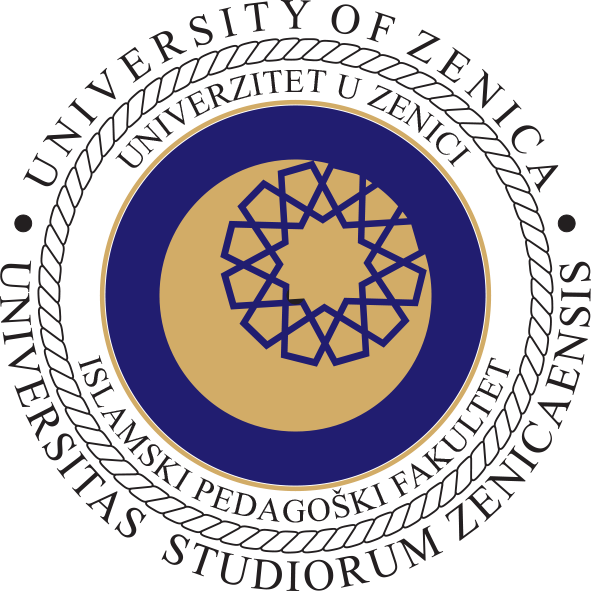POETRY IN HANDŽIĆ’S INTERPRETATION OF THE QUR’AN
Mehmed ef. Handžić, (1906-1944) was a prominent Bosnian scholar with an imposing opus in different fields. The uniqueness of his works lies in the fact that he was the only one, in modern history of Bosnian Muslims, to interpret the Holy Qur’an in Arabic, and to treat the ayats with sharia background (ajatul-ahkam). His important interpretations ar...
By Halil Mehtić
RELATION BETWEEN ALLAH’S ATTRIBUTES AND HIS SUPREME BEING (ALAKATU SIFATILLAHI TEALA BI ZATIHI)
This issue is not of only philosophical character apart from Quranic-Sunni texts. The issue started inside a circle of Islamic society where Islamic texts were the foundation for everything in their lives and way of thinking. They were even the main trait of a Muslim personality. The domain of divine in the way of an individual’s reasoning should b...
By Zuhdija Adilović
ILHAMIJA ŽEPČAK'S SPIRITUAL AND INTELECTUAL BACKGROUND
Since Ilhamija is one of the most influential personalities of Bosnian culture at the end of Otoman period learning his intelectual and spiritual exertion becomes necessary in order to better undertand his importance for total social and cultural flow in Bosnia and Herzegovina at that time. Applying the deconstructional method of text analysis, Il...
By sedad dizdarevic
HISTORIC STUDY OF THE ORIGIN OF SECTS AND SCHISM IN ISLAM
After the Prophets death, Muslims kept their community compact until the period of Ebu Bekr and Omer. After the assassination of khalif Osman, confrontations and bloodsheds started among Muslims. The unhappy events undermined the strong khalif authority and Islam and Muslims faced a serious situation and temptation. Different opinions about the iss...
By Amel Sarajlić
MAIN ACCENT FEATURES OF DONJI KAMIČAK DIALECT
The aim of this paper is to examine the main accent features of Donji Kamičak dialect and to define their character. The reaearch was done in 2002 and 2005. Dictaphone, notebook, guided and semi-guided conversation were used for collecting data. Based on the analysis, it can be concluded that the Donji Kamičak dialect, according to its primary acc...
By Amina Pehlić
INTERPERSONAL ASPECTS OF REFERENTIAL POWER AND EMOTIONAL INTELIGENCE OF A MANAGER AS A PREREQUISITES FOR EFFECTIVE ORGANIZATION MANAGEMENT
Under the contemporary conditions of postindustrial society, the most important issue of a manager success is reflected through his lidership characteristics. Contemporary managers should be able to balance between their formal and real authority, between rational and emotional inteligence, or between manager and leadership characteristics. Accordi...
By Elvir Čizmić, Izet Pehlić
MESSAGE CONVEYED THROUGH SOME AYATS THAT INCLUDE DERIVED FORMS OF THE TERMS CALL, INVITE, REQUEST
Qur’anic terms de'ā, jed'ū, da'vetun, du'āu and their derived forms have been used in over two hundred ayats that speak about belief in Allah, Righteous Path and Truth. In these ayats people are invited to advocate Truth, to do good deeds, and to avow that they are Muslims. They emphasize Allah’s closeness to people. He requests for people to addr...
By Bilal Hasanović
UPBRINGING AS A FACTOR IN PREVENTING GENOCIDAL BEHAVIOR FAKTOR
Contemporary long line of attacks on human life (torture, killing, execution, terorism, crimes, wars, genocides) annuls the results of scientific and technological development. Thanks to learning/teaching a man as an individual as well as the entire human rase can find a solution to the situation. Upbringing/education not only provides all possible...
By Mujo Slatina
QUR’ANIC-HADITH ORIGINS OF HADITH SCIENCES
In this paper, we present the origins of Hadith sciences or the Terminology of Hadith derived from the Qur'anic and Sunna sources which are the primary sources of all Islamic sciences. We write about an obligation to follow the Sunna, and the relation of the sciences with other Islamic disciplines. The importance of the study of the sciences, that ...
By Esmir Halilović
CHARACTERISTICS OF ARABIC LEXICOLOGICAL RESEARCH – HISTORICAL PERSPECTIVE AND MODERN ARABIC LANGUAGE
Traditionally, lexicography and lexicology are considered to be the most developed disciplines in Arabic linguistics. During pre-Islamic period, Arabs were very concerned the the protection of the original Arabic vocabulary, and in the first centuries of an Islam expansion, the vocabulary of the literary arabic language was collected and compiled...
By Mejra Softić



